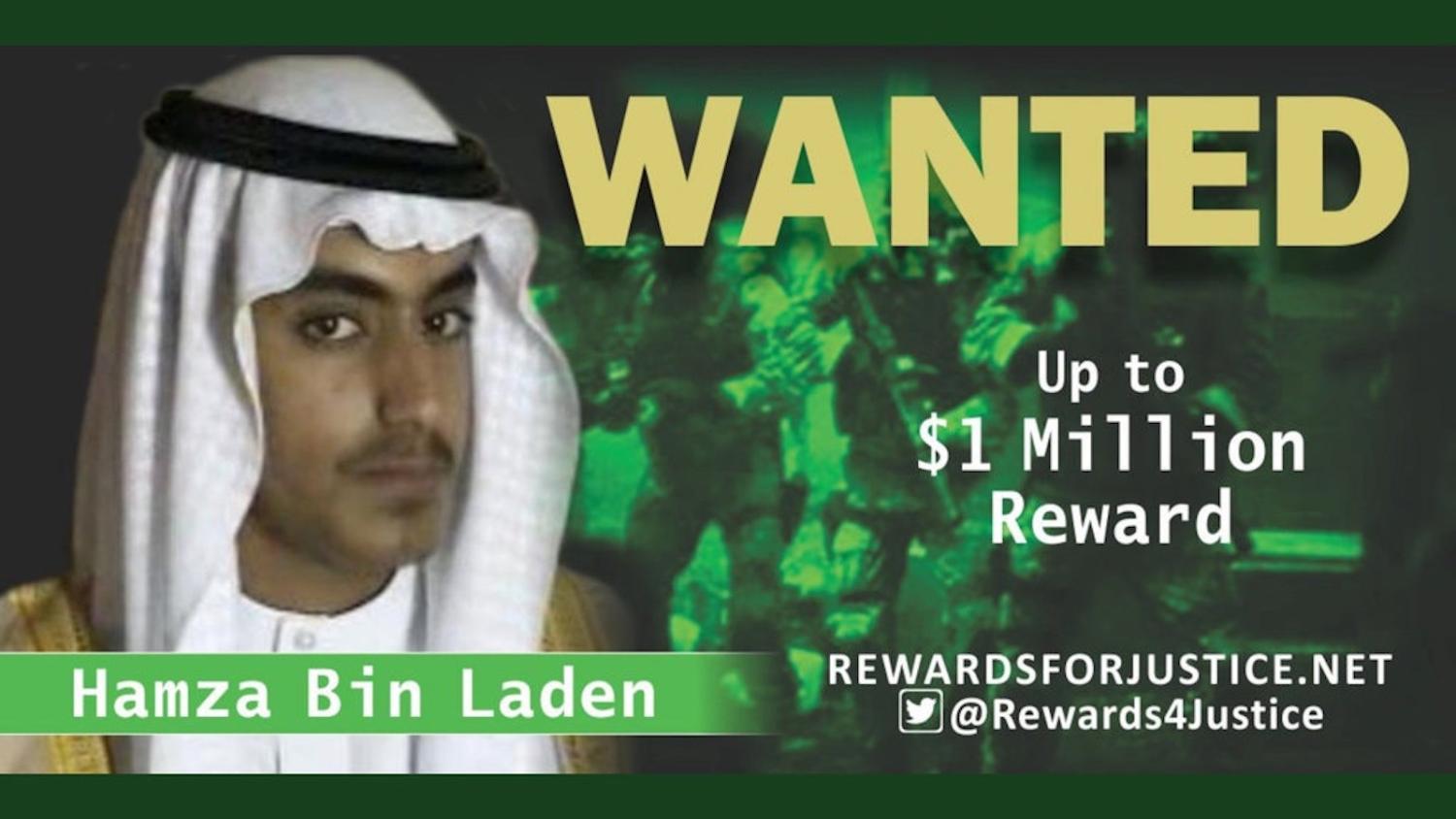This week at least two US officials have anonymously confirmed to US news outlets that Hamza bin Laden, the son of former al-Qaeda leader Osama bin Laden, was killed in a targeted operation. It is clear that counterterrorism and intelligence officials from around the world have been tracking him for some time and his death, if true, is an important blow to the al-Qaeda brand. Hamza bin Laden, or HBL, was touted as a future leader and an important unifying symbol for both the al Qaeda organisation and for the jihadist movement writ large.
But the lack of confirmation from government security services who may have been involved or confirmation of his death from al-Qaeda has left many confused.
Reports in the New York Times claim:
Mr. bin Laden was killed sometime during the first two years of the Trump administration … He was killed before the State Department announced a $1 million reward for information about his whereabouts in February.
That means his death could have occurred as early as two years ago or as late as March 2019 without any official acknowledgement. Clearly there are operational and intelligence gathering procedures that need to be protected, but given HBL lineage and the fact that he was groomed to be the future leader of al-Qaeda, why wouldn’t US officials be keen to publicise his death? And why hasn’t al-Qaeda issued any pronouncements confirming his martyrdom as it usually does when high-profile members have been killed?
The answers to these questions might not even be that illuminating. Despite the murky pronouncements over his death, the reported demise of al-Qaeda’s heir apparent, while an important symbolic win, will not have a significant impact on al-Qaeda’s current operational capabilities.
The reported demise of al-Qaeda’s heir apparent, while an important symbolic win, will not have a significant impact on al-Qaeda’s current operational capabilities.
Although HBL has issued calls for attacks against the West, including most recently in November 2017, he has not been heard from much since. The only other public communication was in an article in May 2018 in a local Afghan al-Qaeda publication calling for attacks to avenge his father’s death.
Interestingly, HBL’s calls for attacks against the West, a consistent theme in his pronouncements, run counter to al-Qaeda’s overall strategic direction, which has eschewed antagonising the West in favour of consolidating their position in areas where it currently operates. This indicates that HBL did not have much strategic input into the organisation, but rather served as an important reminder of al-Qaeda’s global relevance and a unifying symbol among jihadists due to his lineage.
Al-Qaeda has also rebuilt itself to withstand the death of high-profile members and leaders. Since at least 2011, al-Qaeda has strengthened its franchise model to protect its local operations. Because of this decentralisation, al-Qaeda networks and affiliates in Somalia, Yemen, Libya, Syria and elsewhere will remain less affected by the death of high-profile members such as HBL or even a senior leader such as Ayman al Zawahiri.
Despite the anonymous reports confirming his death, HBL remains on the Most Wanted List on the FBI website. Some jihadists have speculated that this latest news this could be a disinformation operation meant to influence al-Qaeda to reveal his whereabouts. Meanwhile, major media outlets continue to report his death.
Other high-profile figures have been reported killed before only to resurface. Whether HBL is dead or alive, al-Qaeda has survived, even thrived, after the death of his father and other more operational commanders. This is a strategy that al-Qaeda has deliberately devised to ensure its survival, and it is a frustrating fact that counterterrorism officials understand all too well.

